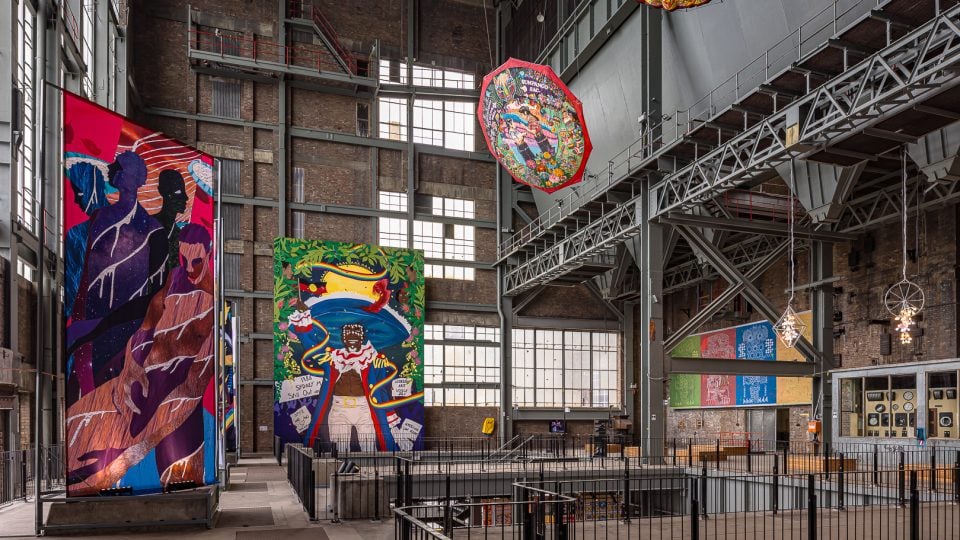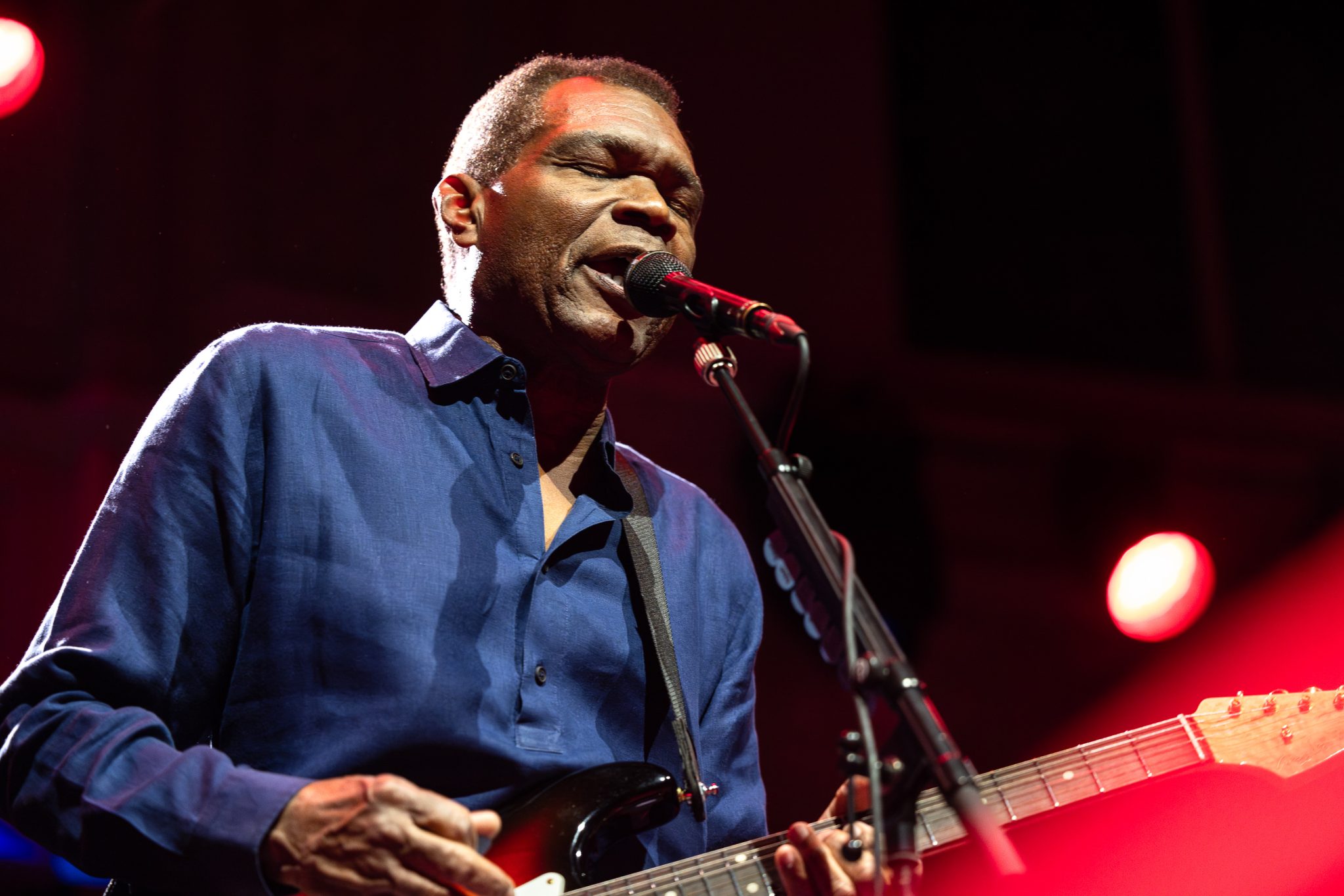OzAsia Festival 2019

Australia’s leading arts festival engaging with Asia presents an eclectic and surprising program of contemporary performance from all across the continent.
From J-pop parties straight from the Tokyo underground to immersions into the golden age of Beirut, and plenty of family festival fun to boot, here’s what not to miss.
Major international arts festivals in Australia have traditionally fixed their gaze on Western Europe for inspiration, but – as the country’s leading contemporary arts festival engaging with Asia – OzAsia Festival flips the script and looks to our closest continental cousin.
The Adelaide festival is now in its 13th year and when artistic director Joseph Mitchell joined five years ago he sensed an opportunity to push it in a more contemporary direction. While traditional Asian culture is well represented in Australia, he considers, “particularly by multicultural communities themselves who want to celebrate the importance of heritage,” he saw that both Western and multicultural audiences weren’t particularly in touch with contemporary culture from across the continent. “As I looked [Asia], at places like Beijing, Shanghai, Jakarta, Seoul, Tokyo,” he says, “I saw there was a lot of boundary-pushing performance.”
The result this year is a dynamic program featuring everything from seminal British Indian musician and composer Nitin Sawhney to Southeast Asia’s biggest popstar and a cult theatre act straight from the Japanese underground. Running from 17 October to 3 November, OzAsia Festival will see 850 artists from more than 20 countries working across music, theatre, dance, film, literature, visual art and more, performing at Adelaide Festival Centre venues and across town. Here are some highlights.
An underlying theme of this year’s festival, says Mitchell, is how we’re approaching the end of the second decade of the 21st century: “and I thought, what an interesting point in time.”
He’s using this moment to not only explore the generations of artists who have come to the fore in the last two decades, blending their multicultural heritage with contemporary performance, but to revisit the first wave of artists that initially inspired them. Nitin Sawhney is one such example and at OzAsia Festival this year he revisits his breakthrough album Beyond Skin 20 years after its release, blending elements of jazz-soul, drum and bass, flamenco and traditional Indian music.
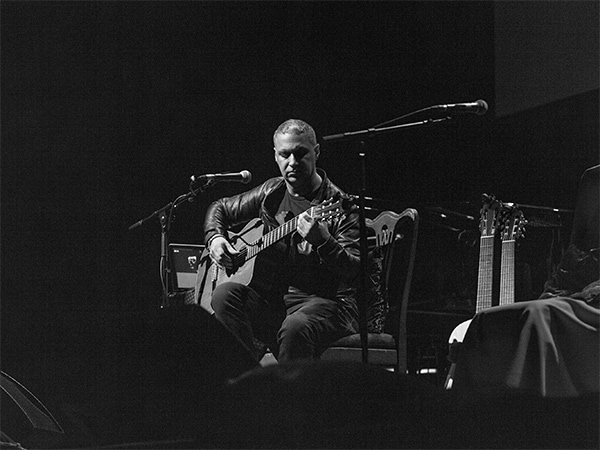
Beyond Skin blends elements of jazz-soul, drum and bass, flamenco and traditional Indian music
The UK’s multi-award-winning choreographer Akram Khan has been blending Indian kathak form and contemporary dance since the early 2000s. An OzAsia Festival favourite, the Akram Khan Company returns to Adelaide with a new production, Outwitting the Devil, inspired by an ancient work of literature with an ensemble of dancers from India, Taiwan, Australia, Malaysia, the US and France.
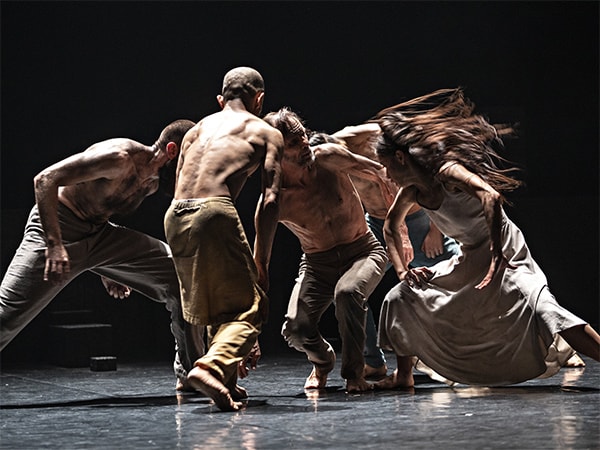
The Akram Khan Company returns to Adelaide with a new production, Outwitting the Devil
Fans are flying into Adelaide from overseas for this one: with over six million record sales and six million followers on Instagram, Siti Nurhaliza is Southeast Asia’s biggest popstar, and widely referred to as The Voice of Asia.
The Malaysian singer has over 23 years in the industry and performs in Malay, Mandarin, English, Arabic and Japanese, combining modern pop and ethnic traditional melodies. Her one-night-only at the Festival Theatre will be her first ever Australian performance and promises to be quite the show: think backup dancers, costumes and plenty of lighting effects to complement soaring popstar vocals.
Miss Revolutionary Idol Berserker belongs to the new generation of artists redefining their cultural heritage, says Mitchell. “A collective from the underground subculture of Harajuku that really breaks all the rules in terms of your perception of what theatre and dance can be.”
Expect a whirlwind experience that celebrates the subculture of Japanese superfandom and celebrity mania via one big choreographed routine, with glitter, confetti, seaweed, tofu and more blasted from the stage – “on one hand throwing the stereotypes of Japan in your face,” says Mitchell, and on the other hand celebrating them. Raincoats are provided.
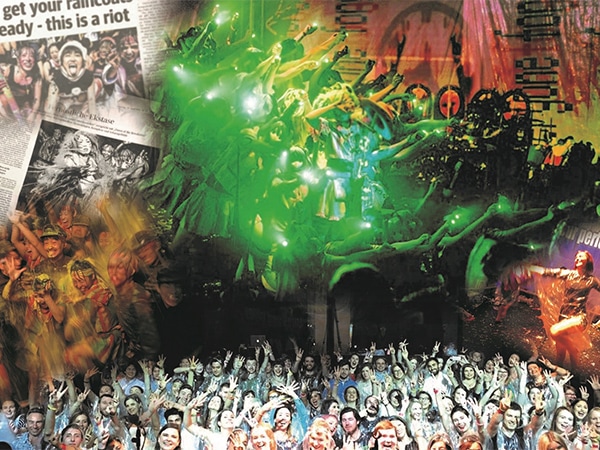
Miss Revolutionary Idol Berserker belongs to the new generation of artists redefining their cultural heritage
With Asia a giant continent that spreads right across to the Mediterranean, Mitchell makes sure that the countries in what is now often referred to as the Middle East, but in the past have been labelled ‘Western Asia’, are well represented. This year, he’s turned his attention to the progressive music scene in Lebanon with two events curated by Lebanese-born, Paris-based producer Hadi Zeidan.
Shik Shak Shok celebrates Lebanon’s golden age of music and cinema (the 1950s to the mid ’70s) with a ‘vinyl cabaret’ evoking the colourful world of Beirut’s iconic cultural scene through visual projections and soundscapes. Expect plenty of lounging, cocktails and hummus. This retro event is counterbalanced by Beirut Electro Parade, “a real club experience with cutting-edge DJs that are performing throughout Beirut now,” says Mitchell.
Shik Shak Shok and Beirut Electro Parade are complemented by a film program of contemporary Lebanese cinema, including two offerings – Caramel and Where Do We Go Now – from the critically acclaimed and Oscar nominated filmmaker Nadine Labaki.
6. Jaha Koo/CAMPO, Cuckoo
Learn about the history of South Korea in the last 20 years through this unusual, darkly comedic and finely crafted piece of theatre. With Cuckoo, South Korean-born theatre/performance maker and composer Jaha Koo shares a deeply personal story about the pressures of modern Korean society with the help of three telerobotic rice cookers.
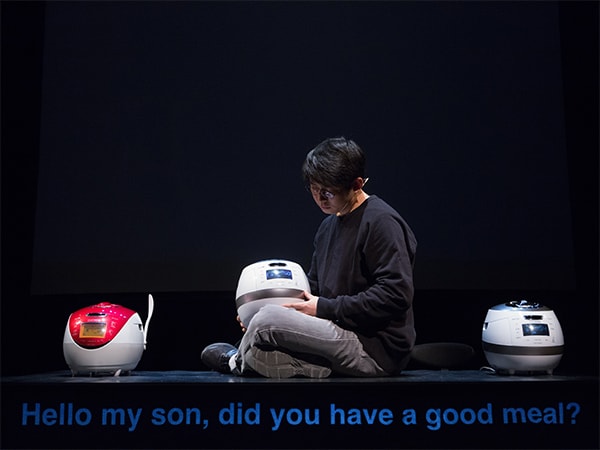
Learn about the history of South Korea in the last 20 years through this finely crafted piece of theatre
A satellite event of the iconic Jaipur Literature Festival, JLF Adelaide brings together celebrated writers, thinkers and performers in a free event that encompasses talks, panels and readings with music and performances.
Conversations this year will take place around themes of myth, privilege, history, violence, gender, hope and peculiar places. Highlights include bestselling writer, politician and former diplomat Shashi Tharoor speak on the enormous impact the British Raj had on the modern world in light of his book Inglorious Empire; an in-conversation with Hannah Kent, author of the hugely successful book Burial Rites; and historian Billy Griffiths, author of Deep Time Dreaming: Uncovering Ancient Australia, interweaving the history of Australian archaeology with the struggle for recognition and rights of Aboriginal people.
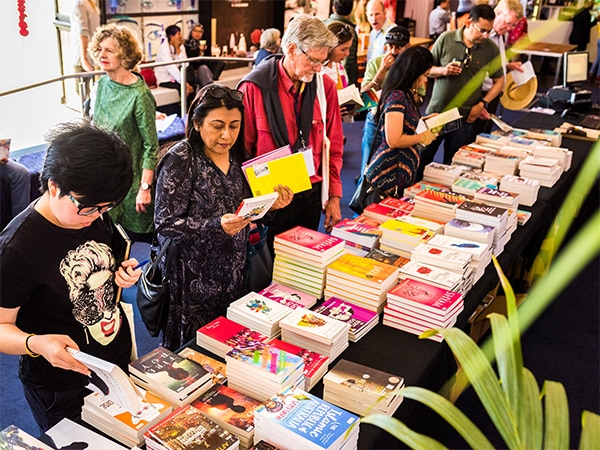
There’s plenty to do at this year’s JLF
Riverside Elder Park is the setting for this year’s family-friendly Moon Lantern Parade, where the lighting of hundreds of hand-held lamps and over 40 giant lanterns, including a 40-metre-long Hong Kong Dragon, help create Australia’s biggest lantern parade. Roving acts, performances from community groups, plenty of food trucks and a fireworks finale contribute to the festival atmosphere.
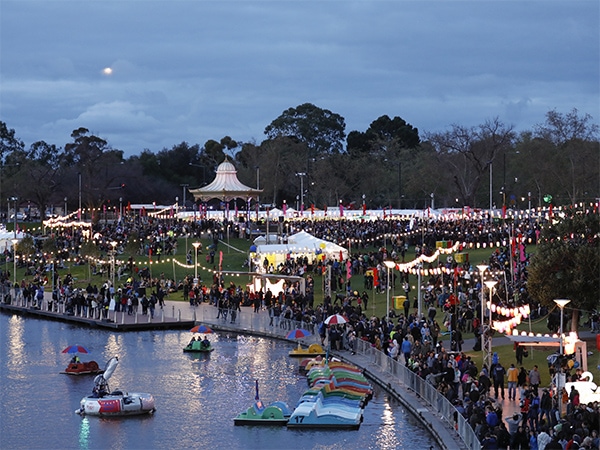
Riverside Elder Park is the setting for this year’s family-friendly Moon Lantern Parade
A festival hub on Adelaide Riverbank Lawn, the Lucky Dumpling Market is the place to go not only for food from all corners of Asia, but free entertainment, lively bars and family-friendly workshops and cultural activities on the weekend. Choose to chow down on curries, stir fries, barbecues, noodles and dumplings, and sip anything from Vietnamese iced coffees to bubble tea and sake.
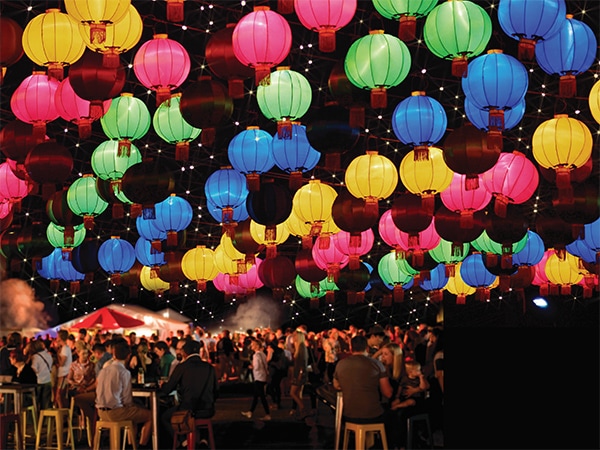
The Lucky Dumpling Market is the place to go
Where to stay in Adelaide:
